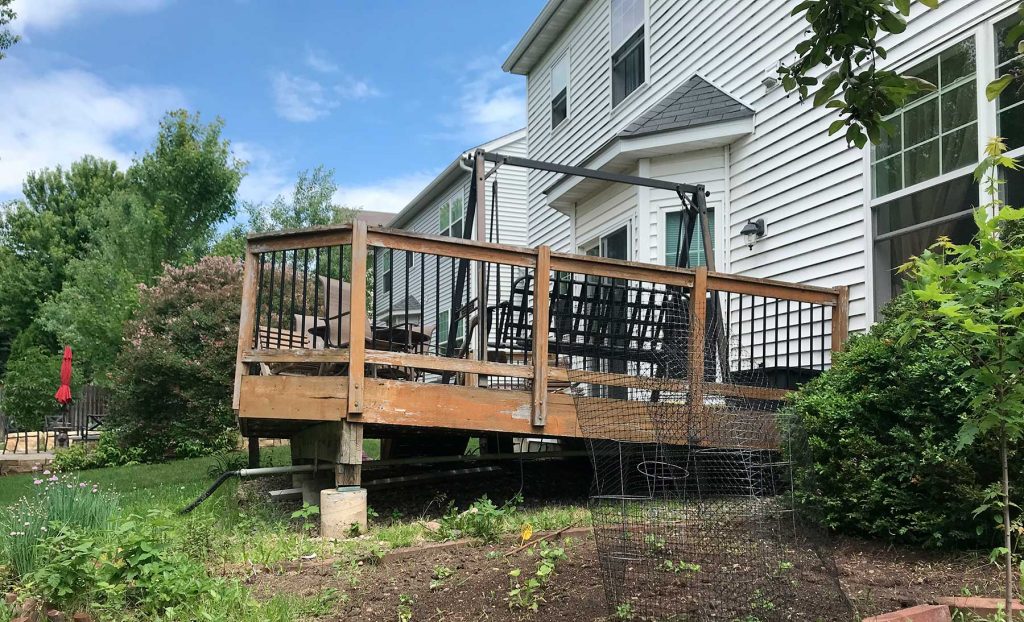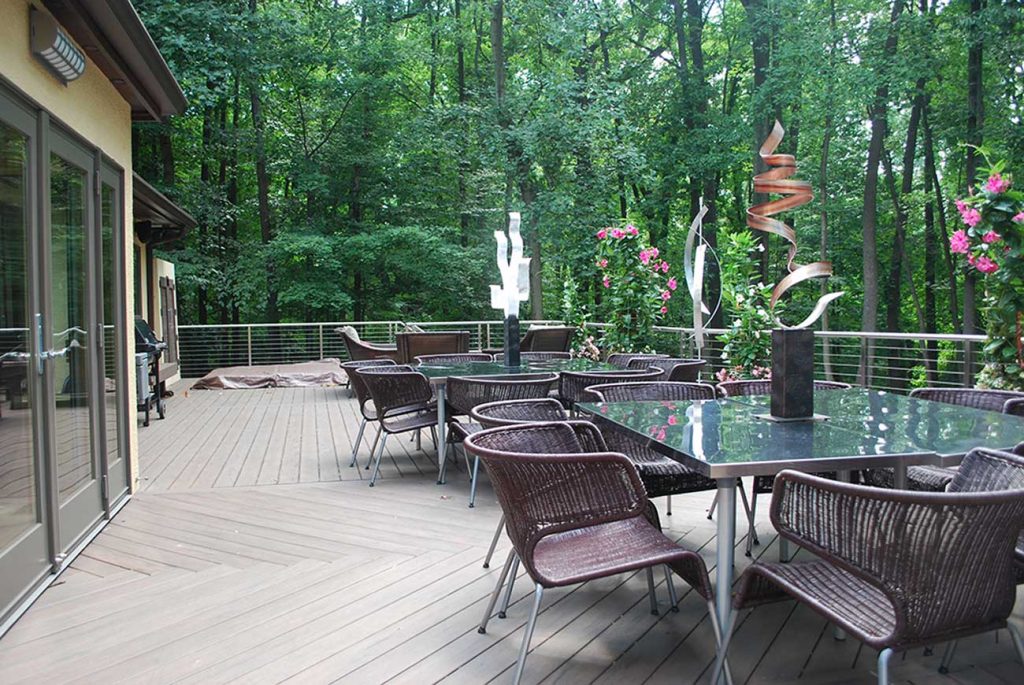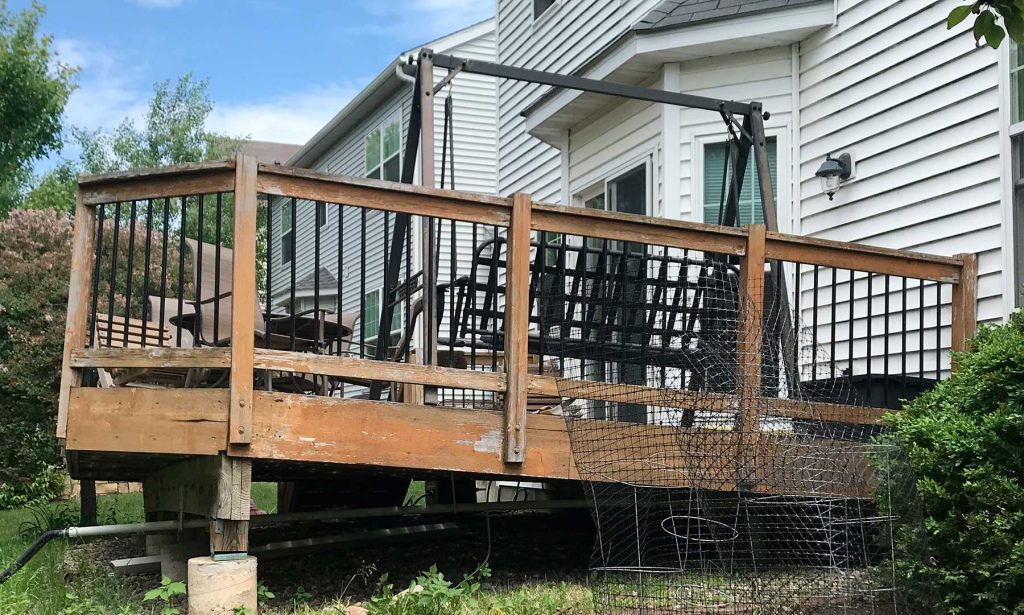
A site that isn’t properly prepared could result in a deck that is no longer level when the soil settles.
June is a great time to enjoy the great summer weather here in Maryland, and also a great time to think about a deck addition for your home.
It might be tempting to tackle that deck project yourself. After all, how hard can it be, really? In reality, a deck may look simple, but there are a lot of things that can go wrong when building one. A skilled deck professional like T.W. Ellis knows what to watch for and can deliver you a quality project that will last for years. We are not only certified remodelers, but also a long-time member of the North American Deck and Railing Association (NADRA).

A qualified deck professional will ensure a quality project for years to come.
There are several reasons to turn to a professional for adding a deck.
Code violations
The various code requirements around decks exist to protect the safety of homeowners. Cutting corners with a DIY deck could put you and your family at risk. Proper concrete footings, dug to the correct depths, protect the deck from settling during freeze/thaw. Using the wrong wood for the decking and underlying structure will raise your risk of a deck collapse. The wrong fasteners (nails instead of screws, screws instead of lag bolts, etc.) can also have dire consequences.
Start talking about second-story decks or other more ambitious undertakings and the task is even more challenging.
To exacerbate the problem, many DIYers will attempt a deck without getting the required permits and associated inspections. If you insist on tackling the project yourself, make sure you get it permitted and inspected!
Faulty attachment

Properly attaching the deck to the home isn’t easy – and the problems can be two-fold. First of all, there is the safety issue of having the deck securely attached. Often the bigger problem, though, is that a deck that is not properly attached can lead to leaks or flooding from joints that aren’t sealed properly. Flashing is necessary with the ledger board to prevent water damage to the siding, insulation, framing, and really any component of your wall.
Avoid bad design
There are dozens of factors that go into the design of a deck, such as railing height, shape, and placement of stairs. A good remodeler will help you make sure your deck is designed for how you want to use it. A poorly designed deck will definitely take away from your enjoyment of your new addition.
